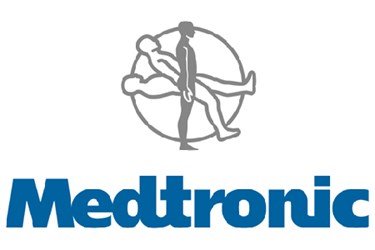Medtronic Gets FDA Clearance For First MRI-Safe CRT-D Devices
By Jof Enriquez,
Follow me on Twitter @jofenriq

Continuing its track record of introducing the first magnetic resonance imaging (MRI)-safe cardiac devices to the market, Medtronic recently gained approval from the U.S. Food and Drug Administration (FDA) for cardiac resynchronization therapy defibrillators (CRT-Ds) for heart failure patients undergoing MRI scans.
A CRT-D sends regulated impulses to the lower chambers of the heart to coordinate their beating (biventricular pacing). Re-synchronizing the left and right ventricles improves the pumping action of the weakened heart. Patients implanted with CRT-D devices previously were not recommended by FDA to undergo MRI scans because of possible interaction between the implanted device and the machine. As a result, no MRI follow-ups were possible to help detect heart failure progression, or co-morbidities common among such patients, such as stroke, cancer, or Alzheimer's disease.
Now, Medtronic announced that patients who received their new Amplia MRI Quad CRT-D SureScan and Compia MRI Quad CRT-D SureScan devices with compatible leads can safely undergo MRIs on any part of the body without positioning restrictions.
"What's clear from the data and my own personal experience is that a large majority of CRT-D patients will likely need an MRI at some point. Now that CRT-D MRI devices are approved, patients can receive an MRI in a straightforward manner," said J. Rod Gimbel, M.D., Case Western Reserve University, in a press release. "This is a significant development for heart failure patients with CRT-D therapy."
Medtronic is a pioneer in developing and marketing the first cardiac devices approved by FDA for use with MRI, starting with the Revo pacemaker in 2011, and progressing to the Evera implantable cardioverter defibrillator (ICD) in 2015. The company drew from this expertise in developing the first MRI-safe CRT-D devices, which will be available in the coming months.
The Amplia and Complia devices feature Medtronic's quadripolar technology, which allows more ways to position cardiac stimulation over their bipolar predecessors, lowering the incidence of adverse events, according to Med Page Today.
Said devices also feature the AdaptivCRT algorithm, which Medtronic claims in a study to have reduced 30-day readmissions by 46 percent versus echocardiography-optimized CRT, and to have reduced patients' atrial fibrillation risk by 46 percent compared to echocardiography-optimized biventricular pacing.
"With FDA approval of Amplia MRI and Compia MRI, Medtronic continues to lead the market in MR-conditional implantable cardiac devices, bringing greater access to patients that need this vital diagnostic test to identify other potential life-threatening diseases," said David Steinhaus, M.D., VP and GM of the Heart Failure business, and medical director for the Cardiac Rhythm and Heart Failure division of Medtronic, in the release. "Medtronic is committed to continuing to develop innovative technologies that offer physicians a wide range of technology options to help them improve outcomes for heart failure patients."
